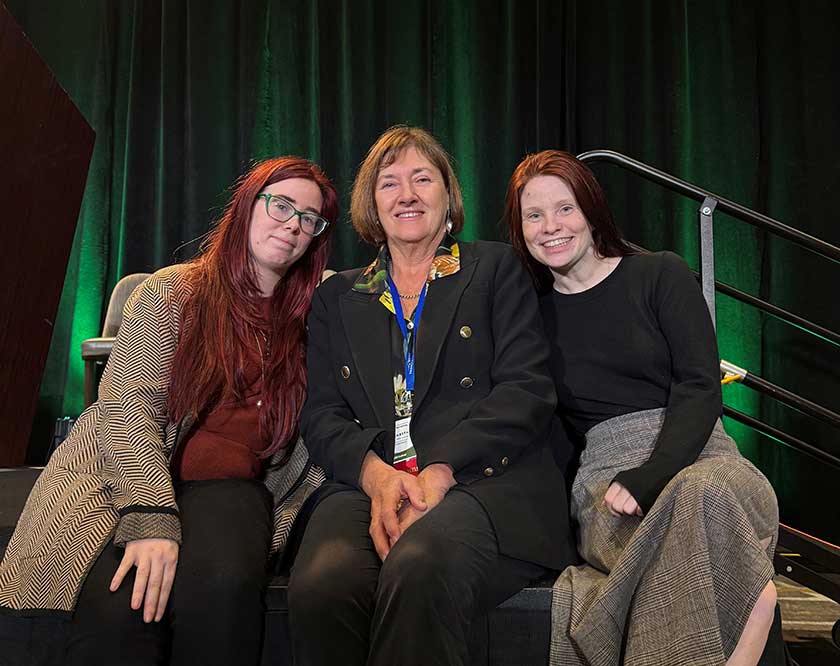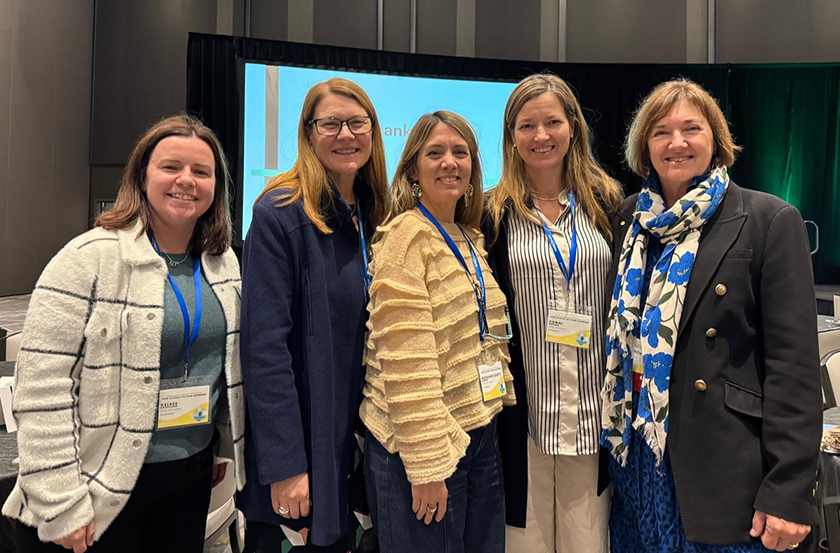
Image: (Left to right) The International ALC of FASD Changemakers Maggie May, Distinguished Professor Elizabeth Elliott AM, The International ALC of FASD Changemakers CJ Lutke.
We were delighted to see Chair of The FASD Hub Australia Professor Elizabeth Elliott AM, present two invited plenary talks at the 9th International Research Conference on Fetal Alcohol Spectrum Disorders (FASD) in Seattle, United States.
The three-day event, hosted by FASD United, provided an opportunity for experts from around the world to share international academic research on FASD.
Since 1987, the conference has been a platform for enhancing understanding and building partnerships in the field. Covering topics from prevention to intervention and highlighting the voices of lived experience, it fosters collaboration between scientific and community sectors.
“This international meeting brings opportunities for skill building and research collaboration. The inclusion of individuals and families living with FASD in every session adds a crucial dimension to this scientific conference. It is an honour to be part of the conference organising committee and it was impressive to see Australia so well represented across the program,” said Professor Elliott.
Professor Elliott and her team had a busy schedule, presenting research findings from ten current studies.
One particular highlight was her plenary presentation with the National Organisation of Fetal Alcohol Spectrum Disorders Australia (NOFASD) CEO Sophie Harrington, and Foundation for Alcohol Research and Education (FARE) Director of Research, Professor Jacqueline Bowden, titled “Empowering Health: Insights and Evaluation of the Australian Public Health Campaign on Alcohol, Pregnancy, and Breastfeeding: ‘Every Moment Matters.'”
This presentation shared insights into the significant impacts of the Australian government-funded campaign, which has effectively increased awareness, shifted intentions, and influenced behaviours related to alcohol use during pregnancy and breastfeeding across Australia since its launch in 2021.
In another plenary, titled “What’s in a name?”, Professor Elliott addressed the controversies surrounding the use of the term ‘FASD’ and presented the responses of clinicians and people living with FASD to a recent opinion piece in Lancet Child and Adolescent Health.
As a distinguished Professor in the Discipline of Paediatrics and Child Health at the University of Sydney, a consultant paediatrician within the Sydney Children’s Hospital Network at Westmead, Director of the Australian Paediatric Surveillance Unit, and a National Health and Medical Research Council of Australia (NHMRC) Leadership Fellow, Professor Elliott balances research and clinical duties.
She continues to make significant contributions to research and advocacy, raising awareness of FASD with a strong focus on the assessment, diagnostic and management services for children in Australia.


